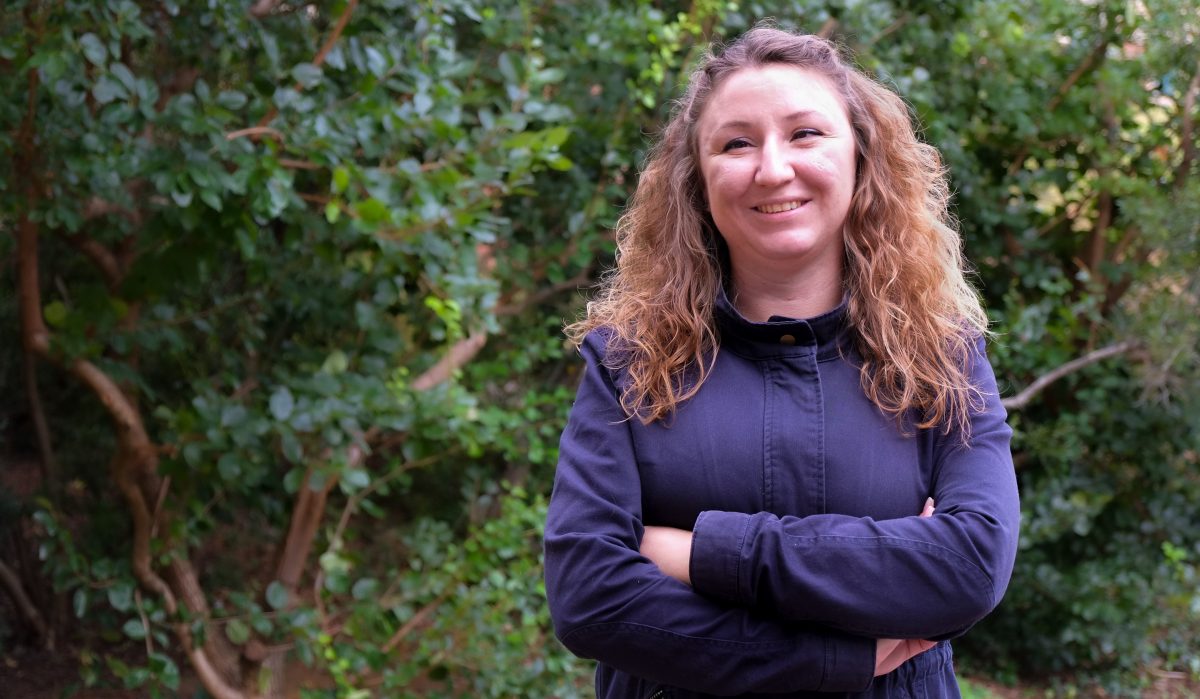
Valeriia Yustyniuk is a senior researcher in the Department of Epizootology and Veterinary Business Organization at the National University of Life and Environmental Sciences of Ukraine in Kyiv. In June, she was awarded a Fulbright Scholarship for program development and research, which she will complete under the mentorship of Maria Correa, professor of epidemiology and public health at the NC State College of Veterinary Medicine and a member of the college’s global health program. Together, they plan to help improve Ukraine’s food security by advancing veterinary education in epidemiology, public health and policy.
Why is food security the focus of your Fulbright Scholarship?
Right now in Ukraine, we need to protect our animal agriculture from new and existing infectious pathogens, such as those that cause lumpy skin disease and foot-and-mouth disease. These diseases have serious economic implications, but improving protection is difficult because compared to the United States we have a completely different livestock farming system in Ukraine. For example, almost 80% of our cattle are kept in backyard farms and only 20% are raised in large commercial farms. To protect our livestock and food security, we need to provide specialized training for veterinarians so they can track infectious diseases and help prevent outbreaks.
How do you plan to provide this training?
My goal is to develop a new epidemiology curriculum to train veterinarians in statistics, risk analysis and public policy. This is particularly important for us because our university is responsible for the veterinary continuing education program. This is mandatory for all practicing veterinarians in Ukraine and must be completed every five years. Each year more than 100 professionals attend the continuing education program, including veterinarians in the state veterinary service who are responsible for preventing the spread of infectious diseases.
Why is it challenging to control livestock infectious diseases in Ukraine?
In Ukraine, people who live in small villages and towns keep cows, pigs and chickens in their backyards. They rely on these animals for food security and as a source of income. This is part of our country’s culture, but the problem with this system is that many people are not familiar with infectious diseases or disease transmission, spread and control measures. In the summer, it is tradition for one person to collect all the cows from the village and walk them to pasture. This mixes cows from different backyards, and it is a potential mode of disease transmission. Since this is an ingrained practice, it will not be easy to change, which is why we need to provide better protection through specialized training for veterinarians.
What training are you completing at NC State?
I am learning about statistics, epidemiology methodologies and the international trade of animal products with Dr. Correa, who has extensive expertise in epidemiology, study design, risk analysis and communication. With Dr. Correa’s guidance, I am also developing ideas for creativity and learning, and discussing different teaching approaches. I find that learning in the U.S. is much more participative. At the NC State College of Veterinary Medicine, students interact and integrate materials from different areas. They are involved in discussions and they prepare for the class ahead of time. For me, understanding how to implement this approach is important when planning new curriculum. To help me with this, I am participating in the core teaching certification and getting hands-on experience in study design and laboratory experiments.
What impact do you hope to have with this curriculum?
Our school in Kyiv is one of the biggest veterinary schools in Ukraine. Every year we graduate the largest number of veterinary specialists, including undergraduate and graduate degrees in veterinary medicine. By developing a curriculum that includes epidemiology and public health, I hope to significantly increase our capacity building for the state veterinary services and help protect our animal agriculture and food security from infectious diseases.
